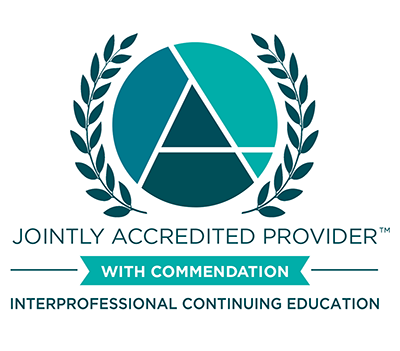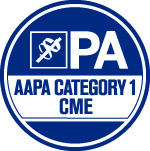Substance Use Disorders Management Boot Camp (2023-2024)
This training aims to enhance confidence and competencies related to the management of substance use disorders in general medical settings. Through case-based and interactive didactic content, the workshop will explore issues related to assessment, monitoring, prevention, and management of issues that commonly occur with substance use (for example addiction, infectious disease, mental health issues.
Intended Audience
This program is designed for physicians, advanced practice nurses, and nurses who treat patients with opioid use disorder.
Learning Objectives
As a result of participating in this activity, learners will be able to:
- Determine accurate diagnosis and initiate treatment for opioid use disorder, alcohol withdrawal, and alcohol use disorder
- Demonstrate skills needed to to work with patients who continue to use drugs and alcohol while in treatment for use disorder
- Determine appropriate treatment plan for OUD and AUD, including the initiation and maintenance of buprenorphine therapy, alcohol withdrawal management, and MAUD.
- Develop approaches to working with and managing patients with stimulant use disorders.
- Determine appropriate approach to evaluation and management of Hepatitis C.
Elements of Competence
This educational activity is designed to change learner competence and focuses on the following competencies:
- Accreditation Council for Graduate Medical Education (ACGME)/Nursing: Patient Care & Procedural Skills, Medical Knowledge, Interpersonal & Communication Skills, and Professionalism
- National Academy of Medicine (NAM)/Nursing: Provide patient/person-centered care, Employ evidence-based practice, and Population Health
- Interprofessional Education Collaborative Competencies: Values/ethics for interprofessional practice, Roles & Responsibilities, and Teams & Teamwork
- UW ICEP Diversity, Equity, and Inclusion: Engage in Self-reflection, Address Health Disparities, and Value Diversity in the Clinical Encounter.
Accreditation Information
See individual sessions for specific accreditation information.
It is the policy of the University of Wisconsin–Madison Interprofessional Continuing Education Partnership (ICEP) to identify, mitigate and disclose all relevant financial relationships with ineligible companies* held by the speakers/presenters, authors, planners, and other persons who may influence the content of this accredited continuing education (CE). In addition, speakers, presenters, and authors must disclose any planned discussion of unlabeled/unapproved uses of drugs or devices during their presentation. For this accredited continuing education activity all relevant financial relationships have been mitigated and detailed disclosures are listed below.
Name | Role | Financial Relationship Disclosures | Discussion of Unlabeled/Unapproved uses of drugs/devices in presentation? |
Randy Brown, MD, PhD, DFASAM | Course Director | No relevant relationships with ineligible companies to disclose | Yes |
Kelly Eagen, MD | Planner | No relevant relationships with ineligible companies to disclose | No |
Jillian Landeck, MD | Planner | No relevant relationships with ineligible companies to disclose | No |
David Leinweber, MD | Planner | No relevant relationships with ineligible companies to disclose | Yes |
Jill Lindwall, RN | Planner | No relevant relationships with ineligible companies to disclose | No |
Alison Miller, MD | Planner | No relevant relationships with ineligible companies to disclose | No |
Amy Parins | Planner | No relevant relationships with ineligible companies to disclose | No |
Jennifer Steele | Planner | No relevant relationships with ineligible companies to disclose | Yes |
*Ineligible companies are those whose primary business is producing, marketing, selling, re‐selling, or distributing healthcare products used by or on, patients.
The ACCME does not consider providers of clinical services directly to patients to be ineligible companies.
 | Accreditation Statement In support of improving patient care, the University of Wisconsin–Madison ICEP is jointly accredited by the Accreditation Council for Continuing Medical Education (ACCME), the Accreditation Council for Pharmacy Education (ACPE), and the American Nurses Credentialing Center (ANCC) to provide continuing education for the healthcare team. |
American Medical Association (AMA) The University of Wisconsin–Madison ICEP designates this live activity for a maximum of 8.25 AMA PRA Category 1 Credit(s)™. Physicians should claim only the credit commensurate with the extent of their participation in the activity. American Nurses Credentialing Center (ANCC) The University of Wisconsin–Madison ICEP designates this live activity for a maximum of 8.25 ANCC contact hours, 5.25 of which are eligible for pharmacotherapeutic contact hours. Wisconsin Medical Examining Board Opioid CME This course is designed to meet the requirements for a continuing education course on the responsible opioid prescribing guidelines per Med 13.03(3) of the Wisconsin Administrative Code. Course title: Substance Use Disorders Management Boot Camp (October 12-13, 2023) Medication Access and Training Expansion (MATE) Act This course is designed to meet the requirements outlined in the Medication Access and Training Expansion (MATE) Act. (Click here for more information.) | |
 | AAPA Category 1 CME credit – Live The University of Wisconsin–Madison ICEP has been authorized by the American Academy of PAs (AAPA) to award AAPA Category 1 CME credit for activities planned in accordance with AAPA CME Criteria. This activity is designated for 8.25 AAPA Category 1 CME credits. PAs should only claim credit commensurate with the extent of their participation. |
Continuing Education Units (CEUs) The University of Wisconsin–Madison ICEP, as a member of the University Professional & Continuing Education Association (UPCEA), authorizes this program for 0.825 CEUs or 8.25 hours. | |
Additional sessions will be added as soon as they are determined. For additional questions, please contact Kathleen Maher, [email protected].

 Facebook
Facebook X
X LinkedIn
LinkedIn Forward
Forward